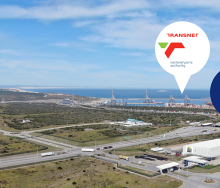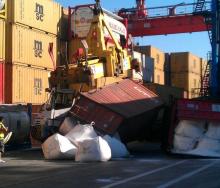E-commerce is growing faster than ever, and more consumers are leveraging online platforms in making purchasing decisions. In fact, two-thirds of consumer shopping journeys include internet research, reports McKinsey & Company, as well as word-of-mouth recommendations and past experiences. According to Supply Chain 24/7, e-commerce is on track to become the dominating force in all sales. By 2020, the value of B2B e-commerce will surpass $1 trillion, and manufacturers, distributors, retailers, reverse logistics managers, third-party freight brokers and logistics service providers are working to keep up with the trend.
E-commerce has made it impossible to meet the status quo with traditional technologies, and still, some shippers have not yet implemented e-commerce and transport management system (TMS) solutions. Transportation managers are spending upward of 80 percent of working hours just looking for available shipping capacity, reports Talking Logistics, reflecting a portion of companies that have not leveraged the power of a TMS. Unfortunately, failure to use a TMS contributes to higher freight spend by limiting shipping capacity and forcing shippers to continue with spot rates among carriers. This has the added effect of limiting the number of orders a shipper can fulfil and reducing brand value, creating severe consequences and increasing risk of the Retail Apocalypse coming to the forefront of the e-commerce world for shippers seeking to enter it in the first place.
The use of TMS in e-commerce allows shippers to leverage all modes of transportation, critical during peak shipping times and through the ongoing capacity crunch. A TMS provides an extra opportunity to find the most cost-effective shipping options, and with e-commerce affecting 96 percent of all shippers, the need to leverage the benefits of e-commerce and TMS connectivity. In other words, e-commerce and TMS use must become a single part of an effective logistics strategy.
The Benefits of Deploying Transportation Technology in E-Commerce
Deploying a TMS opens the door to lower-than-advertised freight rates, unique, value-added services and more. Understanding how a TMS leverages technology and experience of the TMS vendor is an integral step in adapting to the needs of e-commerce shipping and fulfilment.
- Better forecasting for inventory management and logistics demand through analytics, preventing backorders. Analytics can be applied to move product, manufacturing and fulfilment to other locations and meet demand. This also enables real-time inventory management, transition to lean, just-in-time inventory management practices and reduced carrying costs as well.
- Machine learning identifies patterns and minimises the risk of disruptions. Machine learning may reduce maintenance spend, increase labour productivity and enable faster, more effective collaboration.
- Automated shipment tracking provides peace of mind to shippers and consumers. Automating shipping tracks eliminates much of the hassle of maintaining end-to-end visibility and lowering transportation costs.
- Dynamic routing tools use real-time data to move product faster, such as avoiding traffic delays and adverse weather, asserts Roberto Michel of Logistics Management. This is where a TMS truly begins to prove its value.
- Digitised freight forwarding enables faster, more cost-effective global trade. International trade can be filled with weeks-long delays, so digitising the process with TMS speeds approval and cross-border trade.
- Secure and faster last-mile delivery through innovative delivery solutions, like privatised last-mile delivery services and concierge services. Such services can reduce delays in final mile delivery and reduce costs of multiple delivery attempts.
- Superior customer service and freight management in-house and outsourced services, including managed freight cargo insurance claims and invoice auditing to prevent instances of over- or double-billing. As explained by Eric Johnson of the Journal of Commerce, vendors are already working to create invoice-settlement tools to allow finance departments to reconcile invoices with inventory data and reduce overhead spend.












